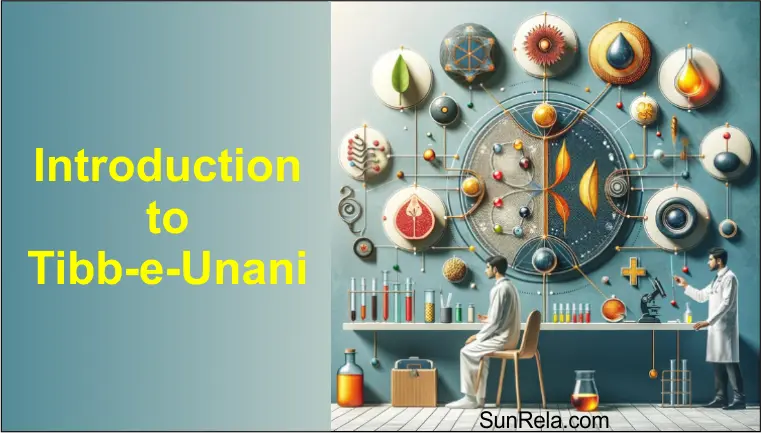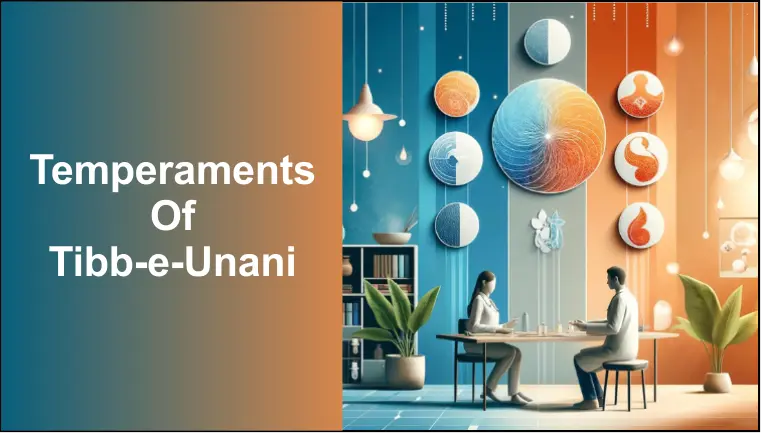Discover the 7 Secrets of Tibb-e-Unani/Eastern Medicine
“Briefly Introduction 7 Secrets of Tibb-e-Unani/eastern medicine.”
Tibb-e-Unani, or Unani medicine also known as eastern medicine/Oriental medicine, is a venerable system of healing that traces its origins back to ancient Greece, a testament to its enduring wisdom. Enriched and refined by the insights of Persian and Arab physicians, this system, rooted in the balance of four humors: blood, phlegm, yellow bile, and black bile, strives to preserve health and combat illnesses through natural methods such as diet, herbal medicine, and lifestyle adjustments.
- Discover the 7 Secrets of Tibb-e-Unani/Eastern Medicine
- "Briefly Introduction 7 Secrets of Tibb-e-Unani/eastern medicine."
- 1-The Single Organ Theory
- 2-Bacterial and Viral Diseases
- 3-The 8 Temperaments in Tib-e-Unani/Eastern Medicine
- 4-Regimental Treatment Methods
- 5-Diet Therapy in Tibb-e-Unani/Eastern Medicine
- 6-Practical Tips for Diet Therapy
- 7-How Long Should Medication and Abstinence Be Continued in Tib-e-Unani/Eastern Medicine?
- The Global Relevance of Tibb-e-Unani/Eastern Medicine
Innovation by Tabib Dost Muhammad Sabir Multani
In the 19th century, a medical (Tibb-e-Unani/Eastern Medicine) luminary from Pakistan, Tabib Dost Muhammad Sabir Multani, not only revolutionized the field of Greek medicine but also propelled Tibb-e-Unani into a new era of accessibility and applicability. His groundbreaking research, including the Single Organ Theory, a transformative concept that views humans at their cellular core, reshaped our understanding of healthcare and inspired a new wave of medical innovation. His work is a testament to the potential of medical innovation to transform our understanding and practice of healthcare.
1-The Single Organ Theory
The Single-Organ Theory is a cornerstone concept that underscores the individuality of every cell. Much like our own, each cell has its own life cycle and necessitates nourishment, respiration, and waste elimination to flourish. Cells of the same type unite to form a chain, which, whether comprised of identical or diverse cells, merges to form organs such as the heart, brain, liver, stomach, and intestines. This theory presents a novel perspective on the human body and its functions, offering profound implications for healthcare. Its potential to revolutionize healthcare practices is truly intriguing.
When a problem or disease occurs in an organ of complex tissues, it is often mistakenly thought that the entire organ is diseased. This is not true. Each cell and the tissues they form have specific functions within an organ. A problem in any tissue, whether overactive or underactive, constitutes a disease. Treatment focuses on normalizing the function of the affected tissue.
Different tissues in a complex organ support each other to perform the organ’s overall function. Any prolonged imbalance or severe issue in one tissue, caused by internal or external factors like harsh weather, an accident, or an infection, can disrupt the functions of other tissues in that organ. In such cases, identifying and treating the specific tissue problem can restore the entire organ’s health.
An expert in Unani medicine can determine which tissue in which organ is affected by observing the patient’s pulse, eyes, face, tongue, activities, behavior, and medical lab reports. The physician can help resolve the physical or mental issue through dietary changes, lifestyle adjustments, or herbs.
2-Bacterial and Viral Diseases
Our bodies are home to many bacteria, but not all are harmful. Germs require specific conditions to become active and cause diseases such as cholera and flu. According to Sabir Multani, we can maintain our health and prevent these diseases without relying on antibiotics. By regulating the ‘mixture, suda, bile, and phlegm’ to balance our body’s systems, we can naturally empower our bodies to control and eliminate harmful germs. Following the guidance of a Tibb-e-Unani physician can be a proactive step in preventing seasonal diseases and epidemics.
3-The 8 Temperaments in Tib-e-Unani/Eastern Medicine
Tibb-e-Unani/Eastern Medicine uses eight temperaments to assess health and disease, treat illnesses, and promote well-being. These temperaments are:
Treatment By 8 Temperaments
There are two main methods of treating diseases using these temperaments:
1. Next Temperament Method
This method involves using the food or medicine of the next temperament from the disease. This is a safe and principle-based treatment method.
Its means, Cold-Dry to Dry-Cold to Dry-Hot to Hot-Dry to Hot-Humid to Humid-Hot to Humid-Cold to Cold-Humid to Cold-Dry

2. Opposite Temperament Method
This method uses food and medicine that are utterly opposite to the temperament in which the disease is present. This method can cause drastic changes in the patient, which may sometimes disturb the patient. Therefore, it is advisable to use this method only under the supervision of a qualified physician (Tib-e-Unani/Eastern Medicine).

Different methods for treatment in Tibb-e-Unani/Eastern Medicine

Different treatment methods can be adopted in Tibb-e-Unani/Eastern Medicine, including:
– Regimental Therapy
– Diet Therapy
– Pharmacotherapy
– Surgery
Knowing about regimental and dietary treatment is enough for the ordinary person. We will discuss kitchen recipes and readily available herbs or medicines when diseases are mentioned in future articles.
4-Regimental Treatment Methods
B1. Cupping
Cupping involves placing cups on the skin to create suction. This method helps improve blood flow and reduce pain.
B2. Sweating
Sweating therapy helps to eliminate toxins from the body through perspiration. It can be induced through exercise, hot baths, or steam rooms.
B3. Bath
Bath therapy involves using water at different temperatures to treat various conditions. Cold baths can invigorate, while warm baths can relax and soothe the body.
B4. Massage
Massage therapy helps improve circulation, reduce muscle tension, and promote relaxation. Different types of massages can be used depending on the condition being treated.
B5. Counter Irritation
Counterirritation involves applying a substance to the skin that causes irritation and redness. This can help alleviate pain in other body areas.
B6. Purging
Purging is the process of eliminating waste from the body. Natural laxatives or enemas can be used for this purpose.
B7. Diuresis
Diuresis involves increasing urine production to help flush out toxins and reduce fluid retention.
B8. Vomiting
Inducing vomiting can help eliminate toxins from the stomach, especially in cases of poisoning or digestive issues.
B9. Exercises
Regular exercise is essential for maintaining health and preventing diseases. Different exercises can be prescribed based on the individual’s temperament and health condition.
5-Diet Therapy in Tibb-e-Unani/Eastern Medicine
Diet therapy, also known as Ilaj bil Ghiza, is a cornerstone of Tibb-e-Unani. It focuses on the importance of food and nutrition in maintaining health and treating diseases. This approach emphasizes that the proper diet can prevent, manage, and cure various health conditions by balancing the body’s humors and temperaments.
Principles of Diet Therapy
Diet therapy in Unani medicine is based on the belief that every individual has a unique temperament that influences their health. By understanding and aligning with this temperament, one can choose foods that promote balance and harmony within the body. The fundamental principles include:
C1. Personalized Diet Plans: These plans tailor diet recommendations based on an individual’s temperament (hot, cold, dry, or humid) and current health status.
C2. Seasonal Foods: Consuming foods harmoniously with the seasons to maintain balance in the body’s humors.
C3. Natural and Whole Foods: Emphasizing the intake of natural, unprocessed foods rich in nutrients and free from harmful additives.
C4. Moderation: Eating in moderation to avoid overburdening the digestive system and to prevent the accumulation of harmful substances in the body.
C5. Balanced Meals: Ensuring meals are well-balanced with various nutrients to support overall health and well-being.
Benefits of Diet Therapy
Diet therapy offers numerous benefits, including:
Prevention of Diseases: A balanced diet helps prevent chronic diseases such as diabetes, heart disease, and obesity.
Improved Digestion: Proper dietary choices Enhance digestive health, reducing issues like indigestion, constipation, and bloating.
Enhanced Immunity: Nutrient-rich foods boost the immune system, helping the body fight infections and illnesses.
Mental Well-being: Certain foods can improve mental clarity, reduce stress, and enhance mood.
Energy and Vitality: A nutritious diet provides sustained energy and supports overall vitality and longevity.
6-Practical Tips for Diet Therapy
1. Identify Your Temperament: Consult a Unani physician to understand your unique temperament and receive personalized dietary advice.
2. Choose Seasonal Foods: Incorporate seasonal fruits and vegetables into your diet to align with natural cycles.
3. Avoid Processed Foods: Limit your intake of processed and junk foods, which can disrupt the balance of humor.
4. Stay Hydrated: Drink plenty of water and herbal teas to support digestion and overall health.
5. Mindful Eating: Practice mindful eating by savoring each bite and avoiding overeating.
Diet therapy in Tib-e-Unani/Eastern Medicine is a holistic approach to health that emphasizes the power of food in maintaining and restoring balance within the body. You can achieve optimal health and well-being by understanding your temperament and making informed dietary choices. Through our articles, we will guide you on incorporating these principles into your daily life, helping you live a healthier and more balanced life.
7-How Long Should Medication and Abstinence Be Continued in Tib-e-Unani/Eastern Medicine?
In Tib-e-Unani/Eastern Medicine, the duration of medication and abstinence depends on the nature of the disease and the patient’s cooperation.
A newborn baby’s diet consists solely of milk, which provides the energy and nutrients needed for growth. As the baby grows and starts eating solid foods, they receive more nutrients, developing into a strong, intelligent person. However, as responsibilities increase, mental stress rises, and dietary balance often deteriorates. This affects physical activities and weakens the metabolic system, leading to signs of aging.
Life is divided into childhood, adolescence, young adulthood, and old age. You may notice that some people look older or younger than their actual age. Some children appear to be 18, 20, or 22 years old when they are only 8 or 10. This can sometimes be attributed to the use of steroids, which may cause early development of organs. Regardless of the cause, Tib-e-Unani views this as a disturbance of temperament.
Every disease is caused by or leads to a deterioration of a person’s temperament. In both cases, it is essential to identify and correct the existing temperament. If the patient follows the Tib-e-Unani/Eastern Medicine physician’s prescription, temporary disturbances can be resolved within 24 to 72 hours. Chronic diseases such as obesity, diabetes, and high blood pressure may require 4 to 6 weeks or longer for treatment. The exact duration depends on the disease and the patient’s adherence to the treatment plan.
Our articles will guide you in understanding and applying these principles to maintain and restore health.
The Global Relevance of Tibb-e-Unani/Eastern Medicine
Greek medicine, or Tibb-e-Unani/Eastern Medicine, is a great companion for health worldwide. It is not specific to any region and can be adopted by people everywhere to lead a happy and healthy life. Through our articles, we aim to help you understand the principles of Greek medicine. Let’s embark on this journey together.
Conclusion
Tibb-e-Unani/Eastern Medicine is a robust and holistic system of medicine that has stood the test of time. We can achieve better health and well-being by understanding the eight temperaments and using the appropriate treatment methods. Whether you are dealing with a specific health issue or looking to maintain your overall health, the principles of Tibb-e-Unani can guide you toward a balanced and healthy life. Please stay tuned for more articles that will help you understand the specifics of diseases, treatments, and practical tips for incorporating Unani medicine into your daily life. Together, we can embrace the wisdom of Greek medicine and lead healthier, happier lives.




